Zora Neale Hurston Is My North Star
What “Their Eyes Were Watching God” taught me about art and womanhood
This week in Reading Between the Headlines, I’m revisiting a classic that’s been speaking to Black women for generations: Their Eyes Were Watching God by Zora Neale Hurston.
This is the story of Janie Crawford, a woman who learns that her voice is not something to be buried, but something to be lived. Reading it again, I’m struck by how Hurston writes Black Southern womanhood with so much tenderness and strength, like she was handing us a mirror and a lantern at the same time.
I first read this book as a teenager who was trying to find my own way, my own voice. And I return to it now with fresh eyes, middle-aged woman's eyes, still learning how to honor that voice in a world that doesn’t always want to hear it.
This is Janie Crawford’s story, but it’s also our story, the quiet strength behind our silence, the softness hidden beneath our survival. Hurston doesn’t just give Janie a voice. She gives her a mirror, a lantern, and a pen. And in doing so, she gives all of us permission to speak our truths, even when the world tries to turn down the volume.
Zora: The Soror, The Genius, The Ghost
Zora Neale Hurston was a folklorist, anthropologist, novelist, and member of Zeta Phi Beta Sorority, Inc. She was ahead of her time and punished for it. She died broke, her genius buried with her for decades.
But here’s the thing about Black women writers. Even when they’re gone, they still speak.
Zora cracked open what it means to be, to be Black, to be woman, to be free. She reminds us that the voice they tried to silence still sings.
Zora Was a Force
Zora Neale Hurston was a literary force and cultural curator. A truth-teller in print and in life. She wrote, she researched, she documented us: Black life, Southern life, real life. Her words danced with rhythm and rebellion. As a central figure in the Harlem Renaissance, she carved space for stories that the world often tried to erase. She didn’t just write novels. She preserved our folklore. Captured our language and fought for our humanity.
Even though she was overlooked in her lifetime, her legacy roars louder than ever. Zora wasn’t just ahead of her time; she made us catch up to her. She was a thought-leader, a pioneer, a force to be reckoned with.
Howard University & The Hilltop:
Zora Neale Hurston’s brilliance first took root at Howard University in Washington, D.C., where she enrolled in 1918. While there, she made her mark not only as a student but as a trailblazer. She became one of the early initiates of my beloved sisterhood, Zeta Phi Beta Sorority, Inc., a bond of service, scholarship, and sisterhood that still stands strong today.
But Zora didn’t stop at pledging excellence. She helped shape the campus voice, co-founding The Hilltop in 1924, the university’s student-run newspaper that remains the oldest Black collegiate newspaper in the country. She was already doing what she would later be known for: documenting truth, uplifting stories, and leaving a legacy wherever she stood.
Feud with Langston Hughes:
Zora and Langston Hughes began as creative co-conspirators, bonded by their brilliance and a shared mission to uplift Black life through literature. They even teamed up to write a play, Mule Bone, blending wit and cultural nuance in the true spirit of the Harlem Renaissance.
But what started in harmony ended in heartbreak. Disputes over authorship and money soured their partnership, with deeper wounds possibly rooted in pride, jealousy, and the era’s unspoken tensions between rising Black intellectuals. Their falling out remains one of the great “what-ifs” of literary history. It is proof that even icons can clash when ego enters the chat.
Later Life and Death:
After leaving Howard in 1924, Zora Neale Hurston transferred to Barnard College, becoming its first Black student. She earned a degree in anthropology in 1928 and continued graduate studies at Columbia University. But Hurston wasn’t just chasing degrees; she was chasing stories. She traveled throughout the American South and the Caribbean, collecting the folklore, language, and lived experiences of Black communities that mainstream institutions ignored. Her commitment to documenting Black life was revolutionary.
Despite her talent, Zora struggled to find financial stability. The same world that celebrated her genius often failed to support her. She spent her final years in obscurity, suffering a stroke and entering a Florida welfare home. When she died on January 28, 1960, she was buried in an unmarked grave. It wasn’t until years later that author Alice Walker located the site and honored it with a headstone, helping to reignite national interest in Hurston’s work. Her voice never truly went silent because it just needed the world to listen, finally.
What Zora Gave Us
I first read Their Eyes Were Watching God at 16, still unsure of my own power. I remember racing through the pages, breathless. The language wasn’t just beautiful, it was alive. It felt raw, unruly, like it had teeth. Part of me wondered if we were even supposed to be reading this in school. But I didn’t dare say a word, afraid they might take it away.
Now, after carrying a few heartbreaks and telling a few hundred stories, I return to this book with new eyes. And what I see is Zora’s brilliance, plain as day. This wasn’t just a novel, it was a gift. A guidebook for how to survive love, loss, and the long road back to yourself.
This book reminded me that becoming yourself is never neat. It’s not linear. It’s messy, defiant, joyful, lonely, sacred. It’s made of hard lessons, belly laughs, sisterhood, and the kind of quiet strength that only comes from walking through the fire and still choosing joy. And no line captures that better than this:
“Years ago, she had told her girl self to wait for her in the looking glass… The young girl was gone, but a handsome woman had taken her place… The weight, the length, the glory was there.”
Whew! Zora is my North Star. I don’t say that lightly. Her audacity to write us into existence, to center our dialect, our pain, our glory; that was revolutionary. She reminds me, and all of us, that our voices matter, even when the world acts like they don’t.
Zora Neale Hurston is not just a literary icon; she is a blueprint. For Black women, for storytellers, for anyone who’s ever had to fight to be seen. She taught us how to hold our heads high, even when our pockets were empty, even when our names were forgotten. Her legacy is one of courage, truth, and radical self-definition.
Some of my favorite Zora-isms:
“All my skinfolk ain’t kinfolk.”
“Those that don’t got it, can’t show it. Those that got it, can’t hide it.”
And just like that, she got it. And now, so do we.
Janie’s Voice, My Voice
I didn’t know it then, but Janie was becoming me.
When I first read Their Eyes Were Watching God, I couldn’t fully grasp her journey. I admired it, sure, but I couldn’t feel it. Not yet. Now, with some miles behind me, I see it for what it was. A blueprint. A mirror. A bond I didn’t know I’d grow into.
Janie’s story is about becoming. It’s the slow, sacred unfurling of voice, identity, and power. Every time she chooses herself, it lands like a sermon. A declaration. Hurston doesn’t just tell us what it means to be shaped by love, loss, and community; she shows us. And she reminds us that selfhood isn’t a destination. It’s a remembering.
“She was a rut in the road. Plenty of life beneath the surface but it was kept beaten down by the wheels.”
That line? That’s the part that grabs me now. Because I’ve lived it.
As a storyteller, as a Black woman, I return to Zora for truth. She’s my North Star, not because she made things easy, but because she faced the hard parts head-on. She wrote with tenderness and fire. She knew the ache of being brilliant and overlooked. Loud and unheard. Whole and still questioned.
She reminds me why I do this, why I tell stories. I do it to reflect the world back to those who feel invisible inside it. To say: I see you. We’ve always been here.
So many of us are taught to keep going, to swallow our voices, to accept love that doesn’t love us back. But Janie didn’t stay small. She let down her hair.
Black Southern womanhood, in Zora’s hands, is sacred. It’s sensual, soft, sharp, tired, and free. It’s not a monolith. It’s a mosaic. And it deserves to be seen with all its texture.
What I Carry Now
This book reminded me that healing and self-discovery are not linear. Sometimes you walk away from something only to circle back with stronger legs. Sometimes, like Janie, you have to live through it to know your own name.
Like Zora’s novel, I'm not just sharing news stories; I’m digging into the emotional truths behind them. I have to celebrate how Hurston’s work cracked open what it means to be seen, heard, and believed. I am writing this reflection because I want other women, especially Black women, to know that our stories matter. Our voices matter. Our becoming is sacred.
And sometimes, the first step is picking up a book that sees you.
If this reflection stirred something in you, revisit the stories that made you. Dust off the books that once confused you, or scared you, or made you feel seen. Read them again, with the eyes of who you are now.
And if Zora speaks to you the way she speaks to me, don’t keep that feeling to yourself. Pass it on. Share this with someone finding their voice, reclaiming their power, or searching for a mirror. We become more of ourselves when we remember we’re not alone.
Support Black literature. Support Black bookstores.
You can purchase Their Eyes Were Watching God from the Black-owned shop BEM | Brooklyn. Let your next chapter start there.


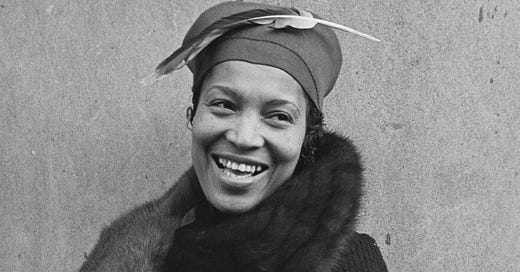


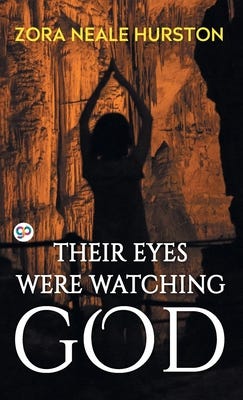

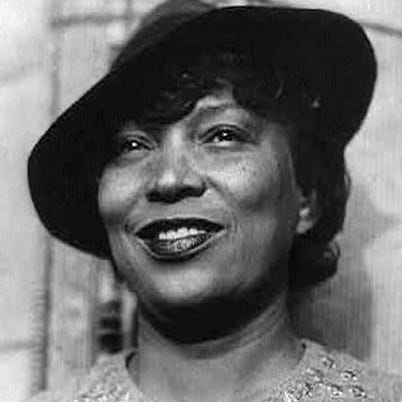
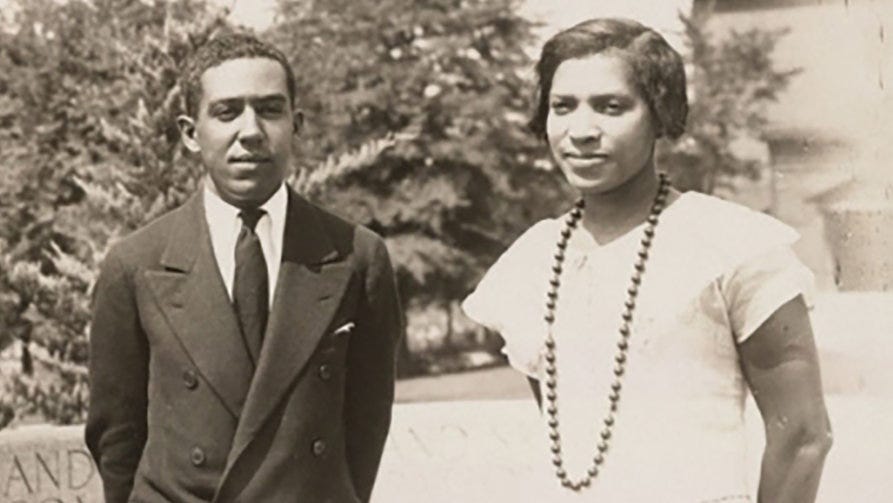
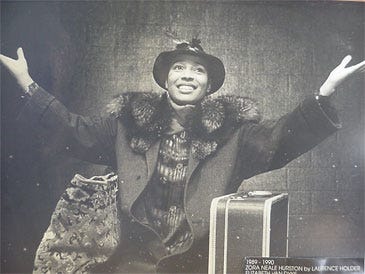
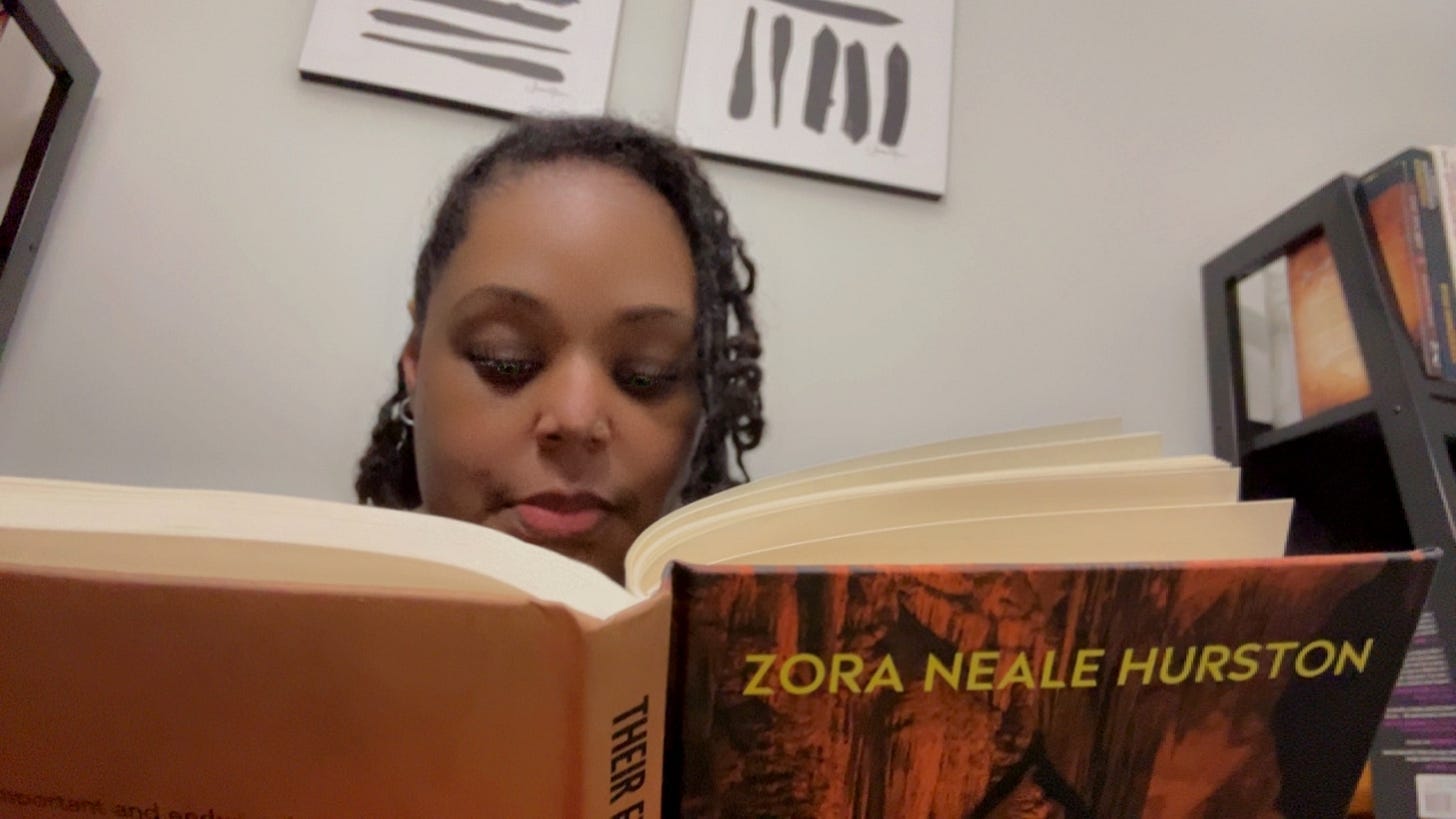
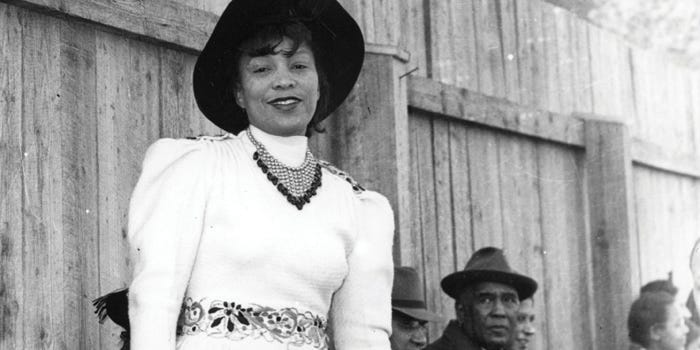
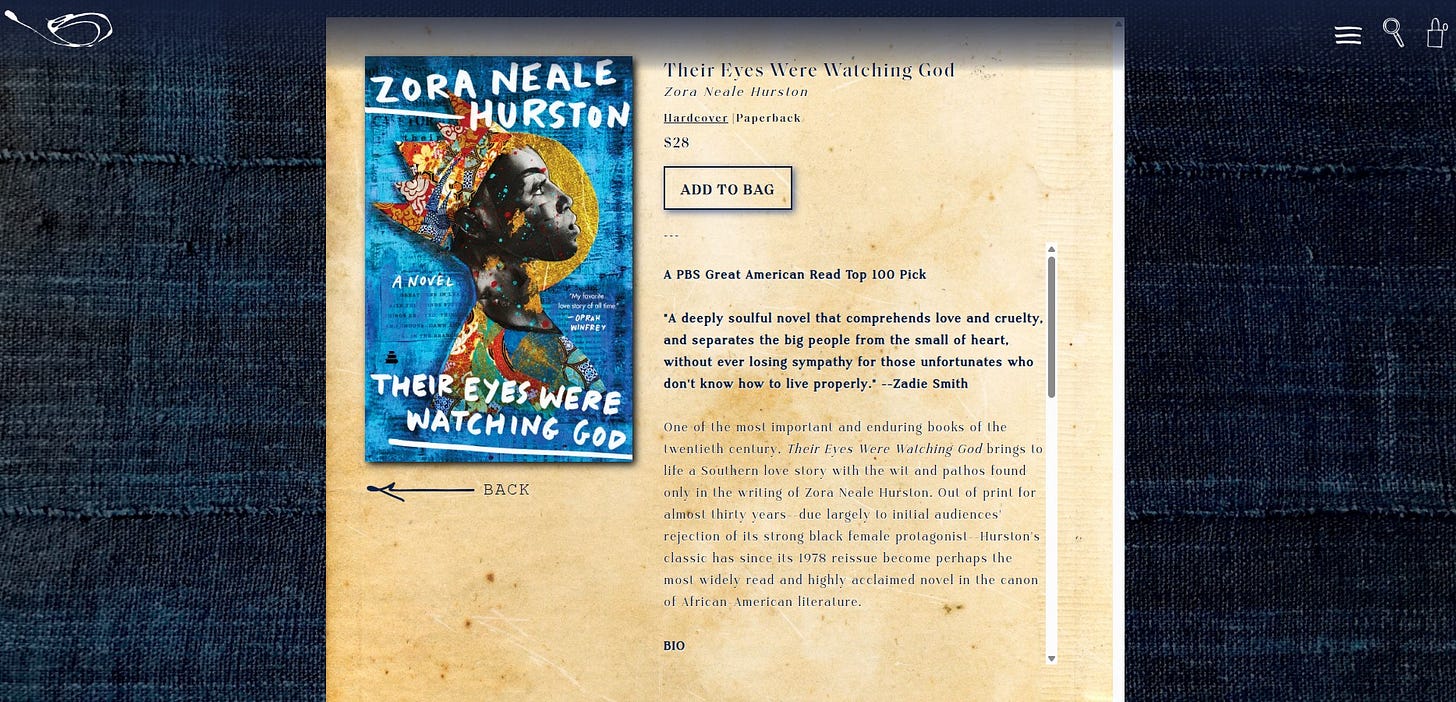


Love me some Zora!
Love the positive vibes here. Only been a month, but digging it. Here is my latest. https://open.substack.com/pub/deargrownwomen/p/no-kings-day-protests?r=4h7ehw&utm_medium=ios
This was a beautiful read thankyou for such an insightful piece.